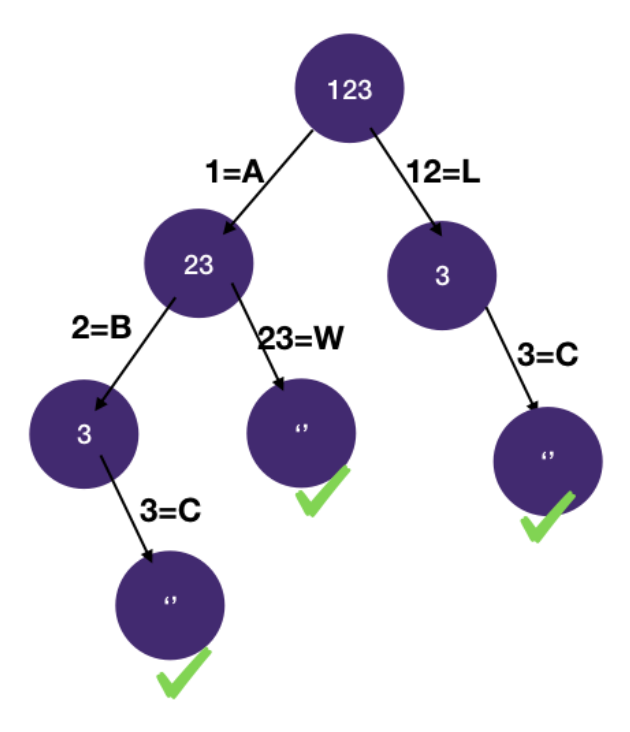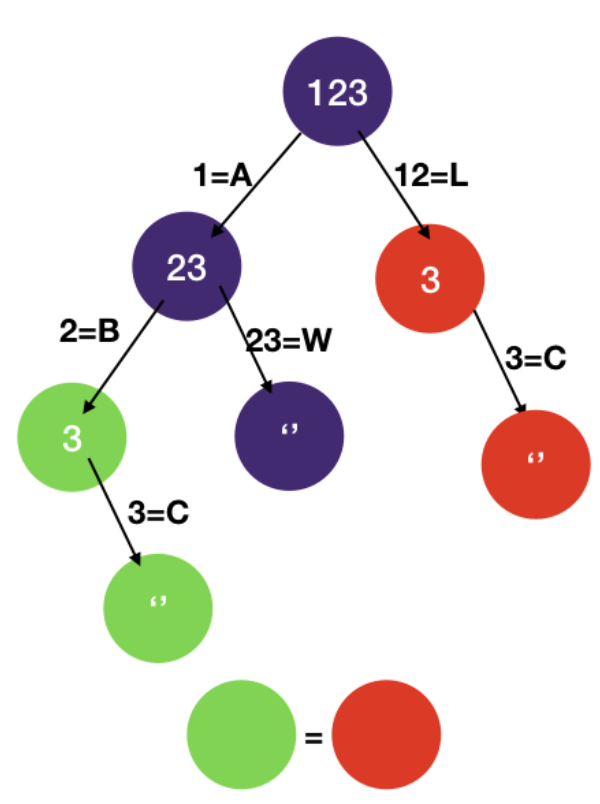Backtracking: Memoization
Decode Ways
We have a message to decode. Letters are encoded to digits by its position in the alphabet
A -> 1
B -> 2
C -> 3
...
Y -> 25
Z -> 26
Given a non-empty string of digits, how many ways are there to decode it?
Input: "18"
Output: 2
Explanation: "18" can be decoded as "AH" or "R"
Input: "123"
Output: 3
Explanation: "123" can be decoded as "ABC", "LC", "AW"
- Solution 1
const LETTERS = Array.from(Array(26).keys(), (n) => (n + 1).toString(10));
function decode_ways(digits) {
return dfs(digits, 0);
}
function dfs(digits, i) {
if (i === digits.length) return 1;
let ways = 0;
const remaining = digits.slice(i);
for (const letter of LETTERS) {
if (remaining.startsWith(letter)) {
// add number of ways returned from child node
ways += dfs(digits, i + letter.length);
}
}
return ways;
}
- Solution 2: using memoization
const LETTERS = Array.from(Array(26).keys(), (n) => (n + 1).toString(10));
function dfs(digits, i, memo) {
if (i in memo) return memo[i];
if (i === digits.length) return 1;
let ways = 0;
const remaining = digits.slice(i);
for (const letter of LETTERS) {
if (remaining.startsWith(letter)) {
ways += dfs(digits, i + letter.length, memo);
}
}
memo[i] = ways;
return ways;
}
function decodeWays(digits) {
let memo = {};
return dfs(digits, 0, memo);
}
Explanation
- Combinatorial search problem, apply the three-step system
- Identify states
- What state do we need to know whether we have decoded a string?
- We can keep track of the number of digits we have already matched in index i
- When i == length of digits, we have finished
- What state do we need to decide which child nodes of the state-space tree should be visited next?
- Since there's no constraint on which letters can be used for decoding, we don't need any state here
- What state do we need to know whether we have decoded a string?
- Draw the space-state tree

- DFS
- Using the backtracking template as a basis, we add the state we identified in step 1:
- i for the number of digits we have already matched.
- DFS returns the number of ways we can decode digits[i:]
- Using the backtracking template as a basis, we add the state we identified in step 1:
- Time Complexity:
O(2^n)- n is the length of the string
- Essentially at every digit we either make a new number or add it to the old one
- We can make this into linear time through dp but currently we have a exponential time solution
